Putin’s cabinet reshuffle hints to his panic over strategic limbo
Vladimir Putin has yet again raised eyebrows by seriously reshuffling the government military and security leadership
By Vladimir Milov May 13, 2024
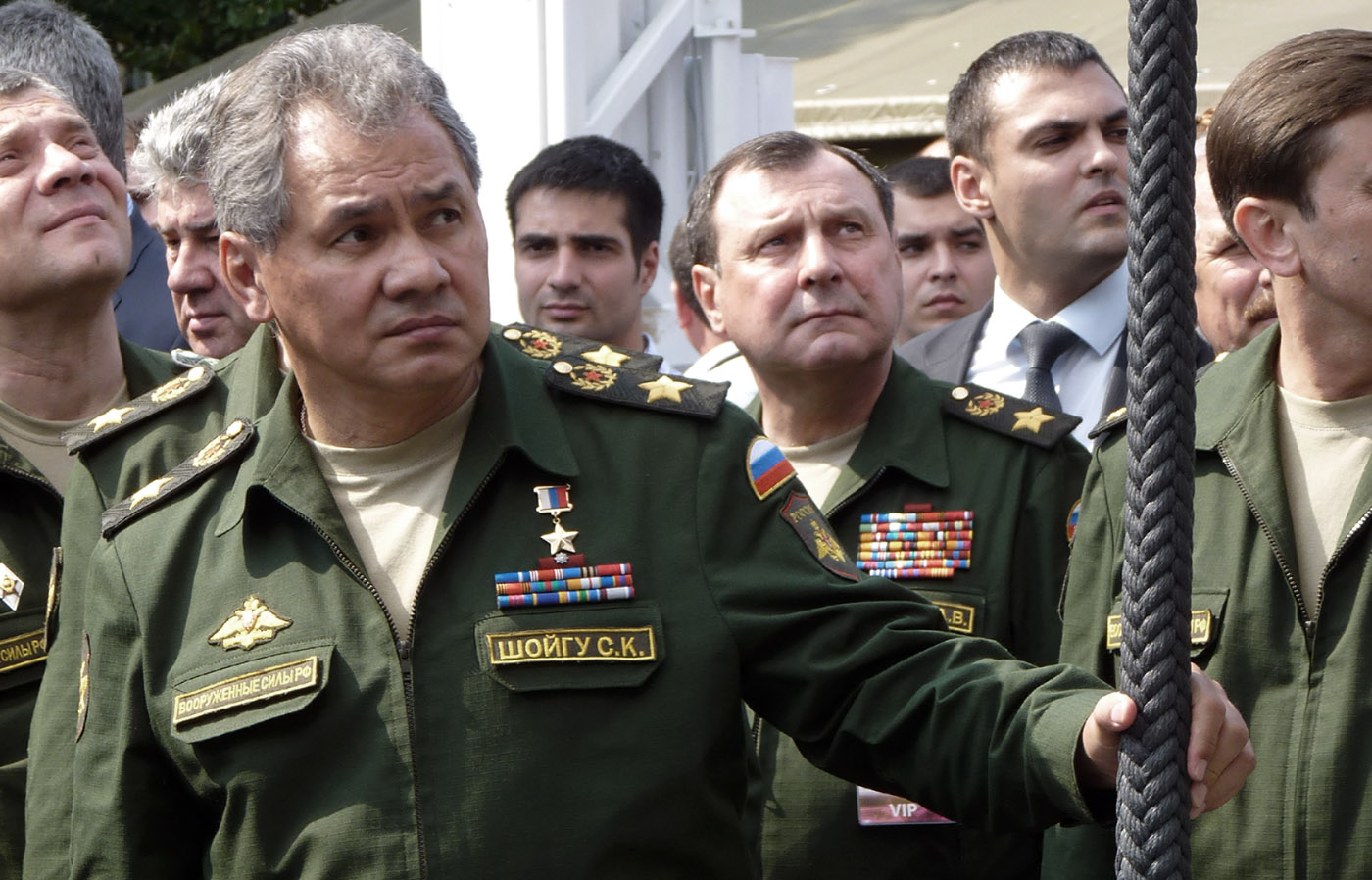
Vladimir Putin has yet again raised eyebrows by seriously reshuffling the government military and security leadership
By Vladimir Milov May 13, 2024

Vladimir Putin has yet again raised eyebrows by seriously reshuffling the government military and security leadership. A longtime Defense Minister Sergey Shoygu was moved to another powerful position of Secretary of the National Security Council; former NSC Secretary Nikolay Patrushev, who was believed to be Putin’s “right hand man”, was sacked, and his further fate is not yet known; economist Andrey Belousov was surprisingly appointed the new Minister of Defense.
Some notable changes have also been made in the civil part of the government. What do all these changes mean, and what are their potential consequences?
Before we jump into discussion on the fate of heavyweights like Shoygu, Patrushev and Belousov, let’s focus for a while on the changes that took place within the civilian part of the government — there were not too many, but these changes are significant, and may at least partially help explain the overall logic of Putin’s cabinet reshuffle.
The most significant change was the replacement of Mr. Belousov who served as First Deputy PM with a longtime Minister of Industry and Trade Denis Manturov.
Vladimir Putin has yet again raised eyebrows by seriously reshuffling the government military and security leadership. A longtime Defense Minister Sergey Shoygu was moved to another powerful position of Secretary of the National Security Council; former NSC Secretary Nikolay Patrushev, who was believed to be Putin’s “right hand man”, was sacked, and his further fate is not yet known; economist Andrey Belousov was surprisingly appointed the new Minister of Defense.
Some notable changes have also been made in the civil part of the government. What do all these changes mean, and what are their potential consequences?
Before we jump into discussion on the fate of heavyweights like Shoygu, Patrushev and Belousov, let’s focus for a while on the changes that took place within the civilian part of the government — there were not too many, but these changes are significant, and may at least partially help explain the overall logic of Putin’s cabinet reshuffle.
The most significant change was the replacement of Mr. Belousov who served as First Deputy PM with a longtime Minister of Industry and Trade Denis Manturov.
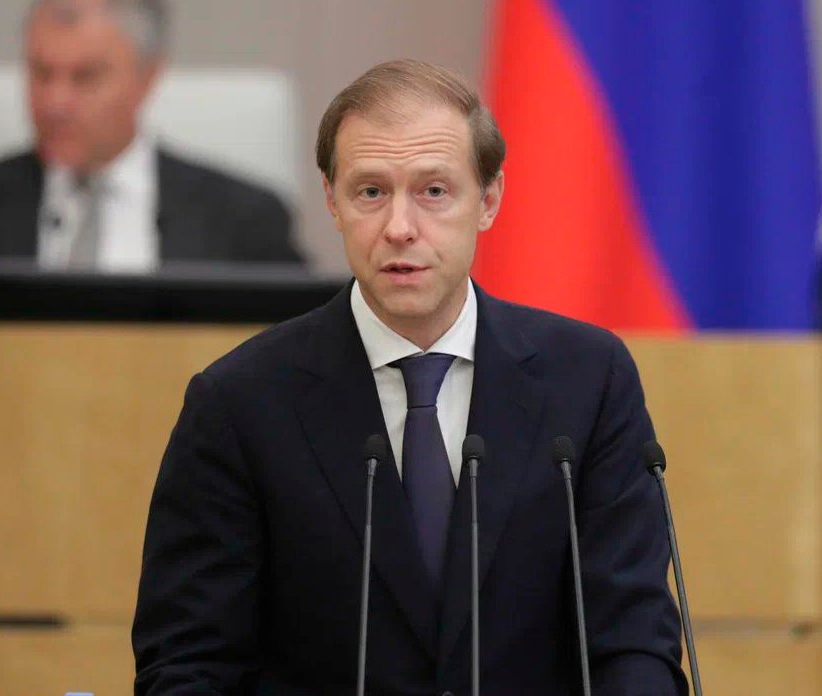

The position of First Deputy PM is quite significant, as its turf includes the oversight of all other Deputy PMs and Ministers. It is a de‑facto “shadow PM”, who supervises everyone, but reports only to the Prime Minister.
The outgoing Andrey Belousov is widely regarded as macroeconomic strategist and visionary, and as a champion of state interventionist economic policies, government investment in strategic “national projects”, promotion of “import substitution”, etc.
Denis Manturov, who replaces Belousov, is no visionary- he is widely perceived to merely lobby the interests of Sergey Chemezov, CEO of Rostec, a nationwide conglomerate of machinery and military production factories, and a major producer of weapons and ammunition.
Mr. Chemezov is one of Putin’s closest and most trusted cronies, who was Putin’s colleague in 1980s in East Germany.
The position of First Deputy PM is quite significant, as its turf includes the oversight of all other Deputy PMs and Ministers. It is a de‑facto “shadow PM”, who supervises everyone, but reports only to the Prime Minister.
The outgoing Andrey Belousov is widely regarded as macroeconomic strategist and visionary, and as a champion of state interventionist economic policies, government investment in strategic “national projects”, promotion of “import substitution”, etc.
Denis Manturov, who replaces Belousov, is no visionary- he is widely perceived to merely lobby the interests of Sergey Chemezov, CEO of Rostec, a nationwide conglomerate of machinery and military production factories, and a major producer of weapons and ammunition.
Mr. Chemezov is one of Putin’s closest and most trusted cronies, who was Putin’s colleague in 1980s in East Germany.
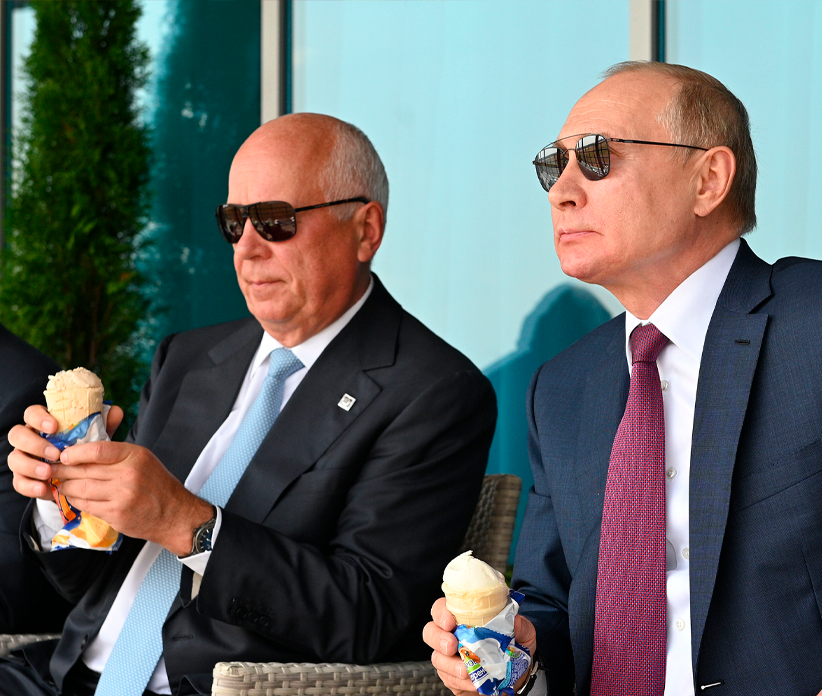

Mr. Manturov used to work in the system of Rostec before 2007, when he was promoted to the position of Deputy Minister of Industry and Trade, effectively becoming the main lobbyist of Chemezov’s interests in the Government. Under Manturov’s watch, Rostec evolved from a network of loosely connected factories to a major monopolist contractor for the government, primarily in military industries.
Notably, on May 11, right after the inaugural meeting with the reappointed PM Mikhail Mishustin, Putin has met with Manturov and Chemezov in the Kremlin, emphasizing the shadow role of Chemezov, and establishing the strategic tasks for the new Government in Mishustin’s absence.
This is a very clear signal to the insiders within the Government system: Putin has singled out Manturov as a key figure in the new cabinet, with powers nearly equal to those of PM Mishustin, and demonstrated that Manturov has the backing of Chemezov, the most powerful oligarch directly benefiting from the war.
Mr. Manturov used to work in the system of Rostec before 2007, when he was promoted to the position of Deputy Minister of Industry and Trade, effectively becoming the main lobbyist of Chemezov’s interests in the Government. Under Manturov’s watch, Rostec evolved from a network of loosely connected factories to a major monopolist contractor for the government, primarily in military industries.
Notably, on May 11, right after the inaugural meeting with the reappointed PM Mikhail Mishustin, Putin has met with Manturov and Chemezov in the Kremlin, emphasizing the shadow role of Chemezov, and establishing the strategic tasks for the new Government in Mishustin’s absence.
This is a very clear signal to the insiders within the Government system: Putin has singled out Manturov as a key figure in the new cabinet, with powers nearly equal to those of PM Mishustin, and demonstrated that Manturov has the backing of Chemezov, the most powerful oligarch directly benefiting from the war.
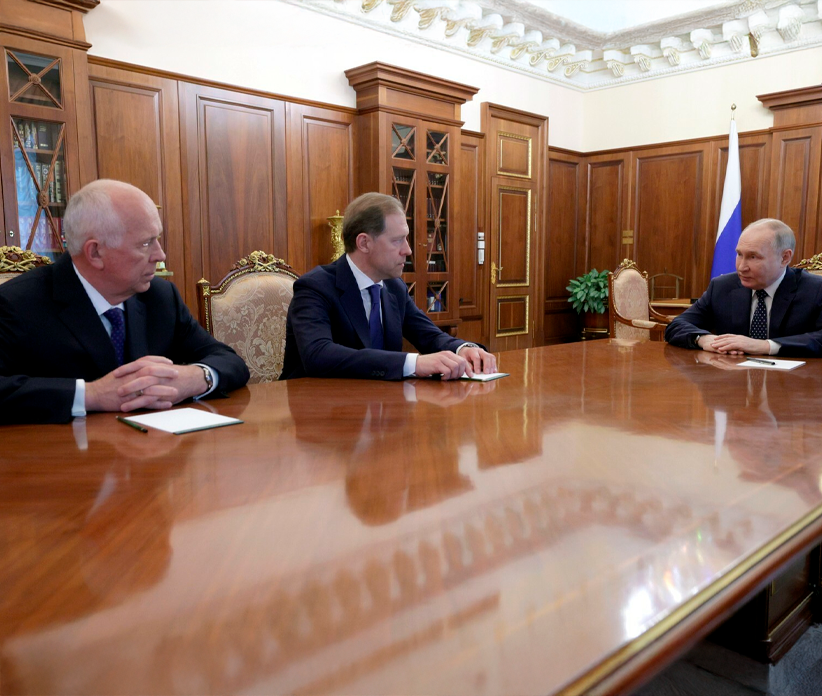

It is important to highlight the role of Chemezov’s Rostec as a driving force behind Putin’s war against Ukraine. Rostec is unquestionably the main beneficiary of the surge in military spending. Procurement of weapons and ammunition is the largest part, about two thirds of the total Russian military budget.
Naturally, Rostec’s revenues have skyrocketed because of the war. In 2023, company’s total revenue surged to nearly RUR 3 trillion, up 50% from the pre‑war level of 2021. Rostec was Russia’s sixth largest company by revenue in 2023, behind only Rosneft, Gazprom, Lukoil, Sberbank and X5 Retail Group.
Only about a third of Rostec’s revenue comes from sales of civilian products. This means that military‑related revenue (RUR 1,9 trillion) makes up about 30% of the total Russian military spending in 2023 (RUR 6,4 trillion). This share is likely set to increase in 2024–2025. That’s how big a beneficiary of the war Chemezov is.
It is important to highlight the role of Chemezov’s Rostec as a driving force behind Putin’s war against Ukraine. Rostec is unquestionably the main beneficiary of the surge in military spending. Procurement of weapons and ammunition is the largest part, about two thirds of the total Russian military budget.
Naturally, Rostec’s revenues have skyrocketed because of the war. In 2023, company’s total revenue surged to nearly RUR 3 trillion, up 50% from the pre‑war level of 2021. Rostec was Russia’s sixth largest company by revenue in 2023, behind only Rosneft, Gazprom, Lukoil, Sberbank and X5 Retail Group.
Only about a third of Rostec’s revenue comes from sales of civilian products. This means that military‑related revenue (RUR 1,9 trillion) makes up about 30% of the total Russian military spending in 2023 (RUR 6,4 trillion). This share is likely set to increase in 2024–2025. That’s how big a beneficiary of the war Chemezov is.


Most likely, Chemezov advised Putin to promote his protégée Manturov to a higher position with broader lobbyist powers and less oversight to consolidate Rostec’s monopoly in securing lucrative long‑term military contracts from the government. In his previous position, Manturov was under a greater oversight from First Deputy PM Belousov, who has been appointed the new war Minister.
Moving forward, there will be no oversight except from the PM Mishustin, who has been given a clear signal not to interfere through recent meeting between Putin, Chemezov and Manturov in Mishustin’s absence.
To understand the full scale of Chemezov’s lobbyist powers, one should only recall that another Chemezov’s protégée and former advisor to the CEO of Rostec Vladimir Gutenyov is now chairing the State Duma Committee on Industry and Trade.
In that position, he is responsible for approving all appropriations for military industries. The new Minister of Industry and Trade, former Kaliningrad governor Anton Alikhanov, is also a former subordinate of Manturov in the same Ministry and is also widely considered to be part of Chemezov’s entourage.
Most likely, Chemezov advised Putin to promote his protégée Manturov to a higher position with broader lobbyist powers and less oversight to consolidate Rostec’s monopoly in securing lucrative long‑term military contracts from the government. In his previous position, Manturov was under a greater oversight from First Deputy PM Belousov, who has been appointed the new war Minister.
Moving forward, there will be no oversight except from the PM Mishustin, who has been given a clear signal not to interfere through recent meeting between Putin, Chemezov and Manturov in Mishustin’s absence.
To understand the full scale of Chemezov’s lobbyist powers, one should only recall that another Chemezov’s protégée and former advisor to the CEO of Rostec Vladimir Gutenyov is now chairing the State Duma Committee on Industry and Trade.
In that position, he is responsible for approving all appropriations for military industries. The new Minister of Industry and Trade, former Kaliningrad governor Anton Alikhanov, is also a former subordinate of Manturov in the same Ministry and is also widely considered to be part of Chemezov’s entourage.
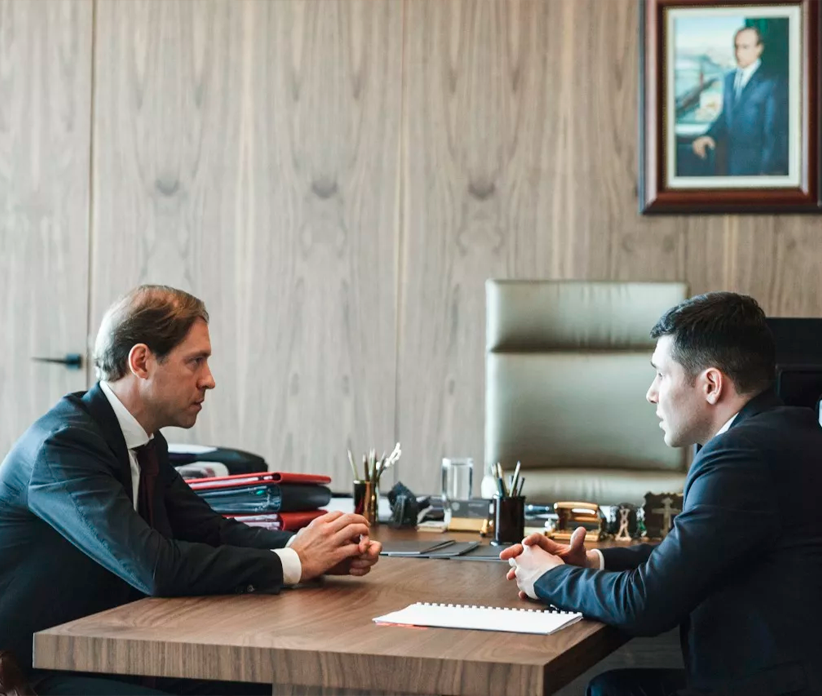

Another important change in the cabinet is the promotion of Dmitry Patrushev, son of powerful ex‑Secretary of the National Security Council Nikolay Patrushev and now ex‑Minister of Agriculture, to the position of Deputy PM.
The former Deputy PM who supervised agriculture, Mishustin’s protégée Victoria Abramchenko, has been sacked; and the new agricultural Minister is Oksana Lut, Dmitry Patrushev’s longtime deputy at the Ministry of Agriculture and, earlier, Rosselkhozbank, Russia’s main state agricultural bank.
Dmitry Patrushev’s scheme looks exactly like Manturov’s: he got rid of the oversight, and consolidated control over agricultural policies. Generally, the newly‑appointed cabinet looks much more controlled by oligarchic powers of Putin’s cronies than the previous version of Mishustin’s Government.
Why is the story line about Chemezov’s and Manturov’s influence in the new Cabinet so important? Because about two‑thirds of the Russian military budget, between 65–70%, is spent not on the army itself, but on procurement of weapons and ammunition.
Another important change in the cabinet is the promotion of Dmitry Patrushev, son of powerful ex‑Secretary of the National Security Council Nikolay Patrushev and now ex‑Minister of Agriculture, to the position of Deputy PM.
The former Deputy PM who supervised agriculture, Mishustin’s protégée Victoria Abramchenko, has been sacked; and the new agricultural Minister is Oksana Lut, Dmitry Patrushev’s longtime deputy at the Ministry of Agriculture and, earlier, Rosselkhozbank, Russia’s main state agricultural bank.
Dmitry Patrushev’s scheme looks exactly like Manturov’s: he got rid of the oversight, and consolidated control over agricultural policies. Generally, the newly‑appointed cabinet looks much more controlled by oligarchic powers of Putin’s cronies than the previous version of Mishustin’s Government.
Why is the story line about Chemezov’s and Manturov’s influence in the new Cabinet so important? Because about two‑thirds of the Russian military budget, between 65–70%, is spent not on the army itself, but on procurement of weapons and ammunition.
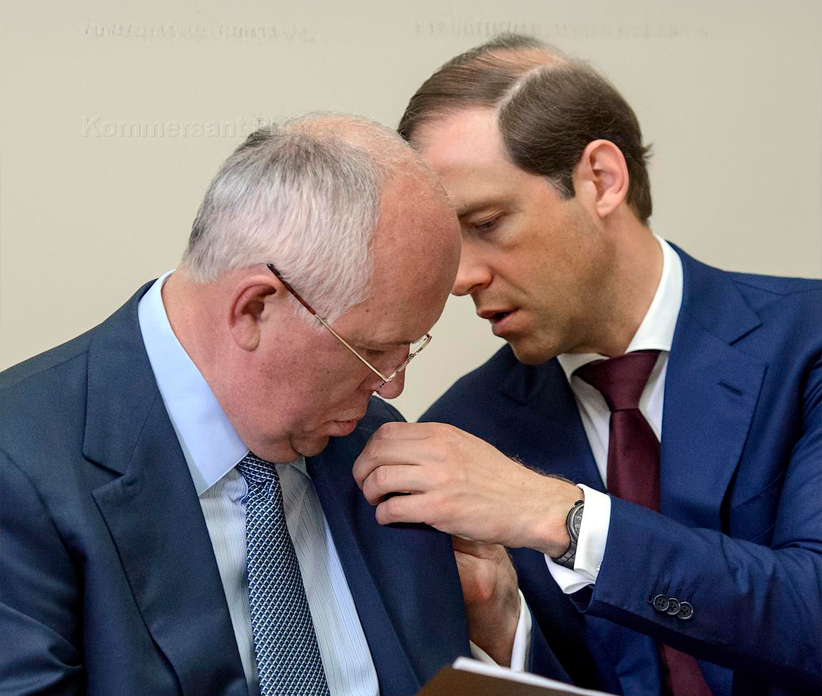

The Ministry of Defense is merely an intermediary between the state budget and military industries. Of course, it has certain influence, but a lot is defined by lobbying powers of top military producers, primarily Chemezov, who arguably has significantly bigger influence on Putin than the Ministry of Defense.
It may be no coincidence that Defense Minister Shoygu’s downfall comes after he began publicly scolding Rostec‑controlled military enterprises for failing to deliver the required weapons on time, such as in the case of Uraltransmash factory. Conflict with powerful military producers also defined the downfall of Shoygu’s predecessor, Anatoly Serdyukov, back in 2012.
The incoming Defense Minister Andrey Belousov has limited room for maneuver in his new post. He hardly controls over 90% of his budget, out of which up to 70% goes directly to the military industry, and another 20% or so are military salaries, which are effectively non‑negotiable.
There are large sums shuffled through corruption and lost to inefficiency on the side of supplies for the military. Arguably, these issues was the reason why Shoygu’s powerful deputy Timur Ivanov was arrested in April. Nevertheless, this part of the Ministry’s budget is within single‑digit percentage points of the overall military budget.
The Ministry of Defense is merely an intermediary between the state budget and military industries. Of course, it has certain influence, but a lot is defined by lobbying powers of top military producers, primarily Chemezov, who arguably has significantly bigger influence on Putin than the Ministry of Defense.
It may be no coincidence that Defense Minister Shoygu’s downfall comes after he began publicly scolding Rostec‑controlled military enterprises for failing to deliver the required weapons on time, such as in the case of Uraltransmash factory. Conflict with powerful military producers also defined the downfall of Shoygu’s predecessor, Anatoly Serdyukov, back in 2012.
The incoming Defense Minister Andrey Belousov has limited room for maneuver in his new post. He hardly controls over 90% of his budget, out of which up to 70% goes directly to the military industry, and another 20% or so are military salaries, which are effectively non‑negotiable.
There are large sums shuffled through corruption and lost to inefficiency on the side of supplies for the military. Arguably, these issues was the reason why Shoygu’s powerful deputy Timur Ivanov was arrested in April. Nevertheless, this part of the Ministry’s budget is within single‑digit percentage points of the overall military budget.
Therefore, the assumptions that Andrey Belousov was appointed to the Defense Minister position to “put everything in order” and “fight corruption” confront the reality of severe and visible strengthening of Chemezov, who will be the major recipient of budgets administered by Belousov.
Therefore, the assumptions that Andrey Belousov was appointed to the Defense Minister position to “put everything in order” and “fight corruption” confront the reality of severe and visible strengthening of Chemezov, who will be the major recipient of budgets administered by Belousov.
Belousov may certainly try to focus on fixing the Russian military’s broken and corrupt supply system, and maybe that will be his key task. However, in terms of scale, Chemezov now clearly has the position of a more important player.
It is reasonable to expect a growing conflict between Belousov and Chemezov, similar to those that characterized all previous military Ministers. This is due to the reality that non‑transparent, monopolized and corrupt Russian military industries have enormous problems with timely delivery of high quality products in necessary numbers under reasonable prices.
As the Russian military production reaches its peak capacity utilization, and serious expansion is required even to maintain the current pace of military operations, not to mention intensified combat operations, tensions between Belousov and Chemezov will inevitably mount.
Another challenge facing Belousov is the fact that he is a complete outsider for the military. He is a laboratory academic who has likely never even held a gun (definitely never served in the military even as a conscript).
It will be very hard for him to establish the proper authority with the top military commanders. That most likely means further sidelining of the Ministry as opposed to strengthened role of the General Staff chaired by Valery Gerasimov, whom Putin kept in his position, unlike Shoygu.
Belousov may certainly try to focus on fixing the Russian military’s broken and corrupt supply system, and maybe that will be his key task. However, in terms of scale, Chemezov now clearly has the position of a more important player.
It is reasonable to expect a growing conflict between Belousov and Chemezov, similar to those that characterized all previous military Ministers. This is due to the reality that non‑transparent, monopolized and corrupt Russian military industries have enormous problems with timely delivery of high quality products in necessary numbers under reasonable prices.
As the Russian military production reaches its peak capacity utilization, and serious expansion is required even to maintain the current pace of military operations, not to mention intensified combat operations, tensions between Belousov and Chemezov will inevitably mount.
Another challenge facing Belousov is the fact that he is a complete outsider for the military. He is a laboratory academic who has likely never even held a gun (definitely never served in the military even as a conscript).
It will be very hard for him to establish the proper authority with the top military commanders. That most likely means further sidelining of the Ministry as opposed to strengthened role of the General Staff chaired by Valery Gerasimov, whom Putin kept in his position, unlike Shoygu.
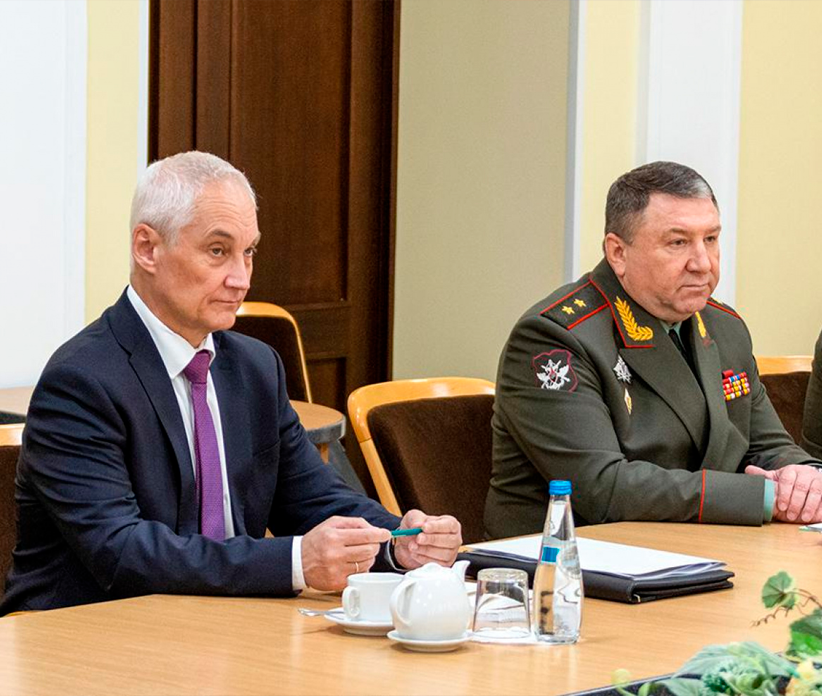

It is important to note that there are signs that Putin enjoys significant personal rapport and shared geopolitical views with Gerasimov. In 1981, Gerasimov commanded the Borne Sulinowo military base in Northwestern Poland, where the Soviet government deployed hundreds of tanks for an invasion of Poland to calm down popular protests. The invasion never happened because the Polish puppet Communist government introduced martial law. Nevertheless, Gerasimov was clearly involved in preparing the invasion.
In 1994, he presided over the Russian troop withdrawal from the Baltic States. Gerasimov most likely nurses the same post‑Cold War geopolitical trauma and hate for the West and for Europe as Putin himself.
It is difficult to see a viable mission for the new Defense Minister Andrey Belousov. His room for maneuver is significantly restrained by lobbying powers of Sergey Chemezov and Chemezov’s protégée Denis Manturov, the new de‑facto “collective shadow PM”.
He will have to engage in intense confrontations on many fronts, including with corrupt, inefficient, but highly influential military industries; with the cleanup of Shoygu’s loyalists; with inefficient military generals, who are nonetheless shielded by powerful and Putin‑loyal Valery Gerasimov.
It is important to note that there are signs that Putin enjoys significant personal rapport and shared geopolitical views with Gerasimov. In 1981, Gerasimov commanded the Borne Sulinowo military base in Northwestern Poland, where the Soviet government deployed hundreds of tanks for an invasion of Poland to calm down popular protests. The invasion never happened because the Polish puppet Communist government introduced martial law. Nevertheless, Gerasimov was clearly involved in preparing the invasion.
In 1994, he presided over the Russian troop withdrawal from the Baltic States. Gerasimov most likely nurses the same post‑Cold War geopolitical trauma and hate for the West and for Europe as Putin himself.
It is difficult to see a viable mission for the new Defense Minister Andrey Belousov. His room for maneuver is significantly restrained by lobbying powers of Sergey Chemezov and Chemezov’s protégée Denis Manturov, the new de‑facto “collective shadow PM”.
He will have to engage in intense confrontations on many fronts, including with corrupt, inefficient, but highly influential military industries; with the cleanup of Shoygu’s loyalists; with inefficient military generals, who are nonetheless shielded by powerful and Putin‑loyal Valery Gerasimov.
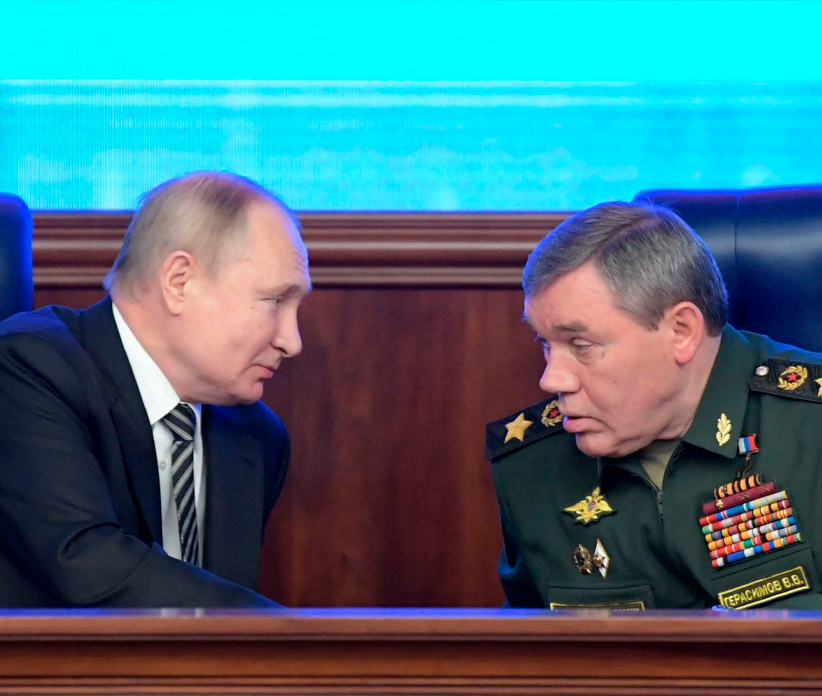

At the same time, the clear lack of military experience and authority vis‑à-vis the top military commanders are the factors that severely weaken Belousov. If he tries to impose his will onto career military servicemen, he will face backlash and criticism of his lack of military background, just like Anatoly Serdyukov faced in 2000s.
His appointment looks more like a desperate move by Putin, who probably sees the things within the Ministry to be so bad that he decides to gamble by appointing a complete outsider to try to solve the issues.
But the “issues” seem to be so fundamental that they simply can’t be solved by one man, especially inexperienced as Belousov. Moreover, the strengthened position of Sergey Chemezov effectively tye Belousov’s hands.
A few words about Sergey Shoygu. Putin considers him a valuable ally, so Shoygu’s dismissal was to be done softly. Shoygu has been exceptionally loyal to Putin throughout all these years, despite having a rare privilege of enjoying a separate high popular approval rating of his own (although gradually vanishing from the public view during the past two years of the war), a rare occurrence for Putin’s bureaucrats.
At the same time, the clear lack of military experience and authority vis‑à-vis the top military commanders are the factors that severely weaken Belousov. If he tries to impose his will onto career military servicemen, he will face backlash and criticism of his lack of military background, just like Anatoly Serdyukov faced in 2000s.
His appointment looks more like a desperate move by Putin, who probably sees the things within the Ministry to be so bad that he decides to gamble by appointing a complete outsider to try to solve the issues.
But the “issues” seem to be so fundamental that they simply can’t be solved by one man, especially inexperienced as Belousov. Moreover, the strengthened position of Sergey Chemezov effectively tye Belousov’s hands.
A few words about Sergey Shoygu. Putin considers him a valuable ally, so Shoygu’s dismissal was to be done softly. Shoygu has been exceptionally loyal to Putin throughout all these years, despite having a rare privilege of enjoying a separate high popular approval rating of his own (although gradually vanishing from the public view during the past two years of the war), a rare occurrence for Putin’s bureaucrats.
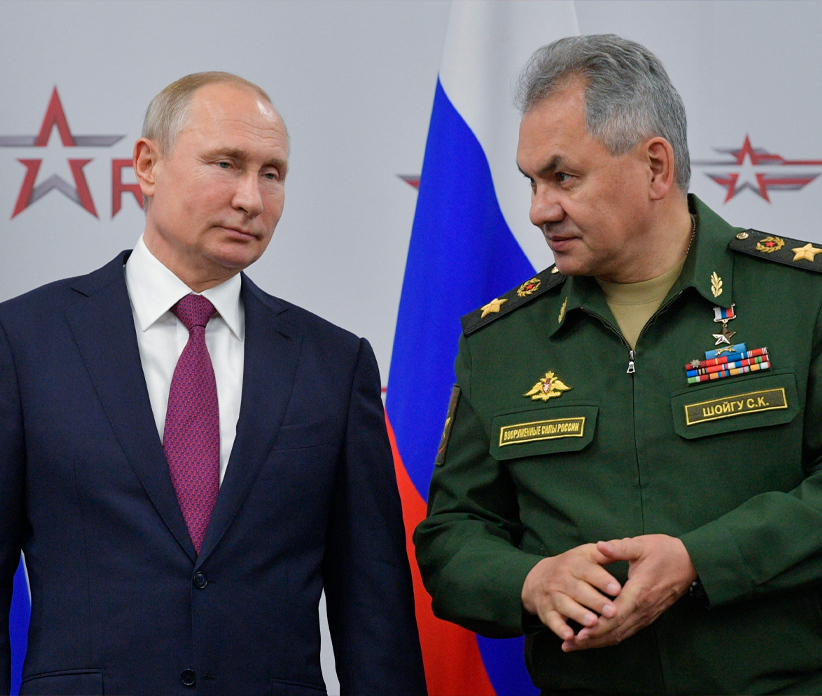

25 years ago, Shoygu did Putin an important favor, leading the electoral list of the pro‑Putin Yedinstvo party and significantly helping install Putin as President. Putin values that; by no means he would treat Shoygu disrespectfully.
But then again, Putin must deem the situation in the war Ministry to be so bad, that he had opted to appoint a completely different person to lead it. And indeed, Belousov is everything Shoygu isn’t.
Shoygu’s new appointment is not disgraceful by any means. Moreover, it looks like a promotion, because the position of Secretary of the National Security Council (Sovbez) had evolved into an effective Chief of Putin’s wartime cabinet under Nikolay Patrushev.
All key decisions on the war, domestic and foreign policy are being made at the regular gatherings of permanent members of Sovbez, which usually take place on Fridays. Secretary Patrushev was the man who prepared all these decisions all the way to Putin’s desk. Now this role is transferred to Shoygu.
Such a move is highly unusual for Putin. Patrushev had chaired the Sovbez secretariat for 16 years, since 2008, and erected a system of bottom‑up nationwide governance, relying on the FSB (Federal Security Service) as its main executive arm. All the important Sovbez staff are Patrushev’s protégées.
25 years ago, Shoygu did Putin an important favor, leading the electoral list of the pro‑Putin Yedinstvo party and significantly helping install Putin as President. Putin values that; by no means he would treat Shoygu disrespectfully.
But then again, Putin must deem the situation in the war Ministry to be so bad, that he had opted to appoint a completely different person to lead it. And indeed, Belousov is everything Shoygu isn’t.
Shoygu’s new appointment is not disgraceful by any means. Moreover, it looks like a promotion, because the position of Secretary of the National Security Council (Sovbez) had evolved into an effective Chief of Putin’s wartime cabinet under Nikolay Patrushev.
All key decisions on the war, domestic and foreign policy are being made at the regular gatherings of permanent members of Sovbez, which usually take place on Fridays. Secretary Patrushev was the man who prepared all these decisions all the way to Putin’s desk. Now this role is transferred to Shoygu.
Such a move is highly unusual for Putin. Patrushev had chaired the Sovbez secretariat for 16 years, since 2008, and erected a system of bottom‑up nationwide governance, relying on the FSB (Federal Security Service) as its main executive arm. All the important Sovbez staff are Patrushev’s protégées.
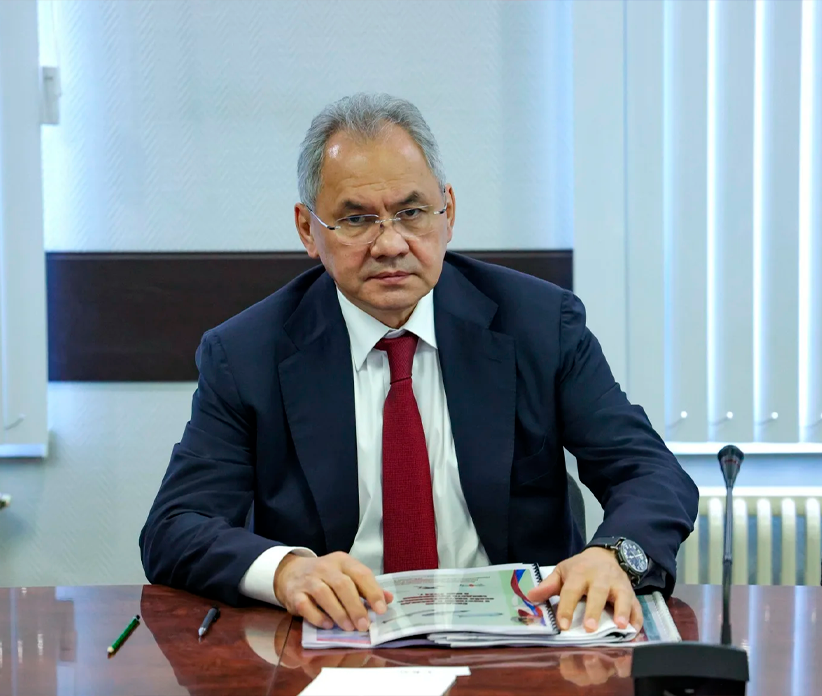

Shoygu is as distant from FSB and from Patrushev’s clan as he can possibly be. The conflict between these two clans was quite visible during the arrest of Shoygu’s deputy Timur Ivanov by the FSB (Shoygu may even be motivated for revenge in his new powerful position).
Moreover, throughout Shoygu’s service as Minister for Emergencies, Governor of Moscow oblast and Defense Minister, he has always created an environment of corruption, cronyism and inefficiency. This stands in stark opposition to Patrushev’s high discipline within the Sovbez‑FSB vertical. This is not to say that Patrushev is not corrupt, but his team was clearly much more focused and less disorderly than Shoygu’s.
Shoygu is as distant from FSB and from Patrushev’s clan as he can possibly be. The conflict between these two clans was quite visible during the arrest of Shoygu’s deputy Timur Ivanov by the FSB (Shoygu may even be motivated for revenge in his new powerful position).
Moreover, throughout Shoygu’s service as Minister for Emergencies, Governor of Moscow oblast and Defense Minister, he has always created an environment of corruption, cronyism and inefficiency. This stands in stark opposition to Patrushev’s high discipline within the Sovbez‑FSB vertical. This is not to say that Patrushev is not corrupt, but his team was clearly much more focused and less disorderly than Shoygu’s.
Putin has thereby moved toward ruining his effective wartime cabinet by appointing his old and loyal but less‑than-competent friend to chair it.
Putin has thereby moved toward ruining his effective wartime cabinet by appointing his old and loyal but less‑than-competent friend to chair it.
Things will become much clearer when we find out the next appointment of Nikolay Patrushev. That is the main mystery of the day wrapped in an enigma. He’s certainly not retiring.
However, all the really powerful posts around Putin have already been distributed. If Patrushev is to retain his influence, Putin has to create some new body of power comparable to Sovbez. But if this happens, it will inevitably lead to more duplication of functions and more rivalries. It all looks a bit weird.
Even if Putin has some sort of a genial strategic plan with all of this reshuffling, it is easy to see that this plan faces strong headwinds. The strengthening of defense industry lobbyists in the new Cabinet will not at all help to fight corruption and deliver more competitive weapons systems.
Having Belousov in the MoD, Shoygu at Sovbez, Patrushev trying to regain old powers in some new chair will inevitably be messy, and divert resources from strategic priorities toward personal rivalries.
Things will become much clearer when we find out the next appointment of Nikolay Patrushev. That is the main mystery of the day wrapped in an enigma. He’s certainly not retiring.
However, all the really powerful posts around Putin have already been distributed. If Patrushev is to retain his influence, Putin has to create some new body of power comparable to Sovbez. But if this happens, it will inevitably lead to more duplication of functions and more rivalries. It all looks a bit weird.
Even if Putin has some sort of a genial strategic plan with all of this reshuffling, it is easy to see that this plan faces strong headwinds. The strengthening of defense industry lobbyists in the new Cabinet will not at all help to fight corruption and deliver more competitive weapons systems.
Having Belousov in the MoD, Shoygu at Sovbez, Patrushev trying to regain old powers in some new chair will inevitably be messy, and divert resources from strategic priorities toward personal rivalries.
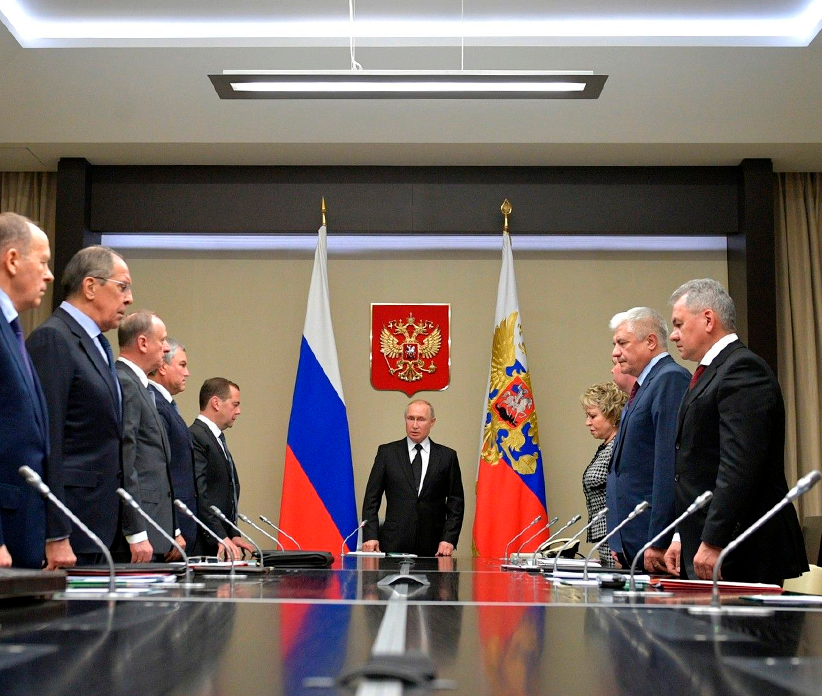

Few of these characters can be called effective managers — Shoygu in the first place, but Belousov’s “successes” in development of a new state‑run import‑substituting economy, after all these long years, are mediocre at best. In his recent speech, Belousov admitted that the notorious import substitution will provide only 1% of GDP growth by 2030 the earliest (if ever).
At the same time, Putin lacks financial resources for significant further expansion of state interventionist policies and military spending (the issue of scarcity of resources is discussed in more detail here).
What is Putin up to, after all? A sober look at all these realities suggests one possible explanation: he’s becoming desperate about the strategic limbo in which he finds himself.
There is no clear way forward; there are serious problems in the army and military industries; dwindling resources. So Putin opts for desperate moves to create a shakeup in hopes that maybe, just maybe, this will create some new momentum. Given the headwinds and the lack of fresh energetic figures among new appointees, that is highly unlikely.
We will continue to monitor the situation — but, after all, the more mess in Putin’s government — the better for Ukraine and the whole free world.
Few of these characters can be called effective managers — Shoygu in the first place, but Belousov’s “successes” in development of a new state‑run import‑substituting economy, after all these long years, are mediocre at best. In his recent speech, Belousov admitted that the notorious import substitution will provide only 1% of GDP growth by 2030 the earliest (if ever).
At the same time, Putin lacks financial resources for significant further expansion of state interventionist policies and military spending (the issue of scarcity of resources is discussed in more detail here).
What is Putin up to, after all? A sober look at all these realities suggests one possible explanation: he’s becoming desperate about the strategic limbo in which he finds himself.
There is no clear way forward; there are serious problems in the army and military industries; dwindling resources. So Putin opts for desperate moves to create a shakeup in hopes that maybe, just maybe, this will create some new momentum. Given the headwinds and the lack of fresh energetic figures among new appointees, that is highly unlikely.
We will continue to monitor the situation — but, after all, the more mess in Putin’s government — the better for Ukraine and the whole free world.
Putin’s difficulties are plenty and mounting
By Vladimir Milov
June 04, 2024
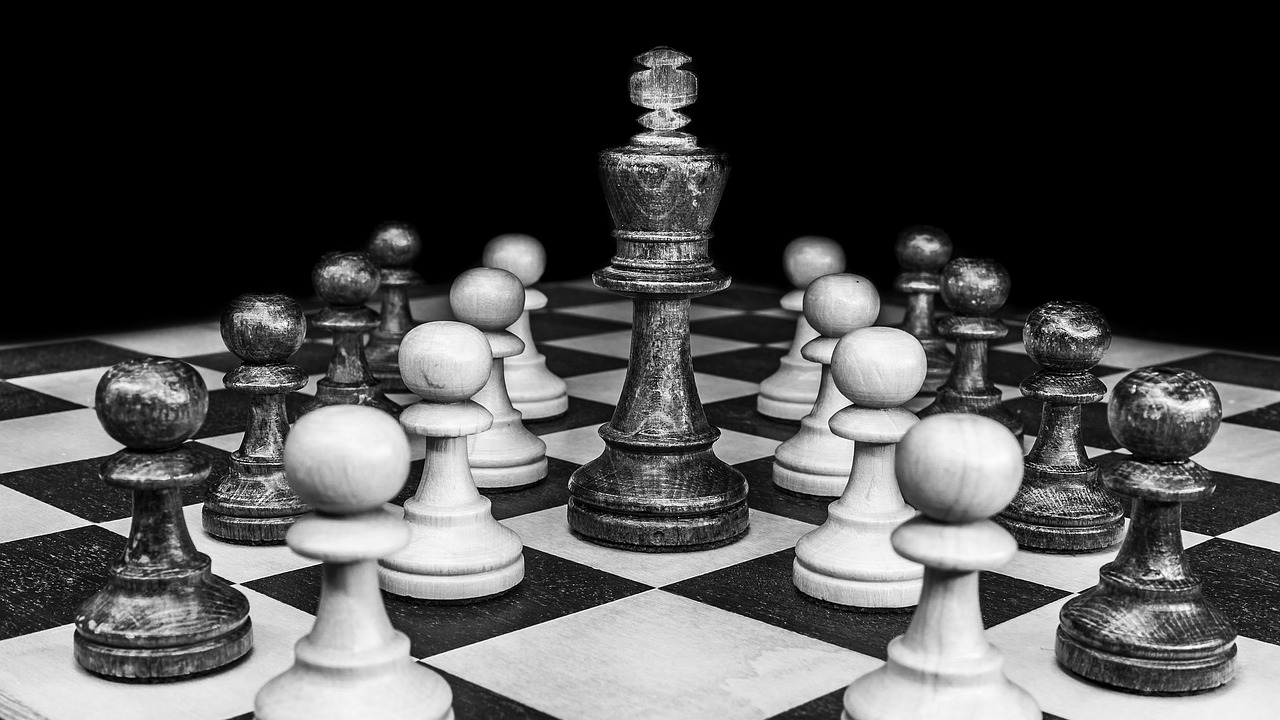 Article
Article By Vladimir Milov
July 03, 2024
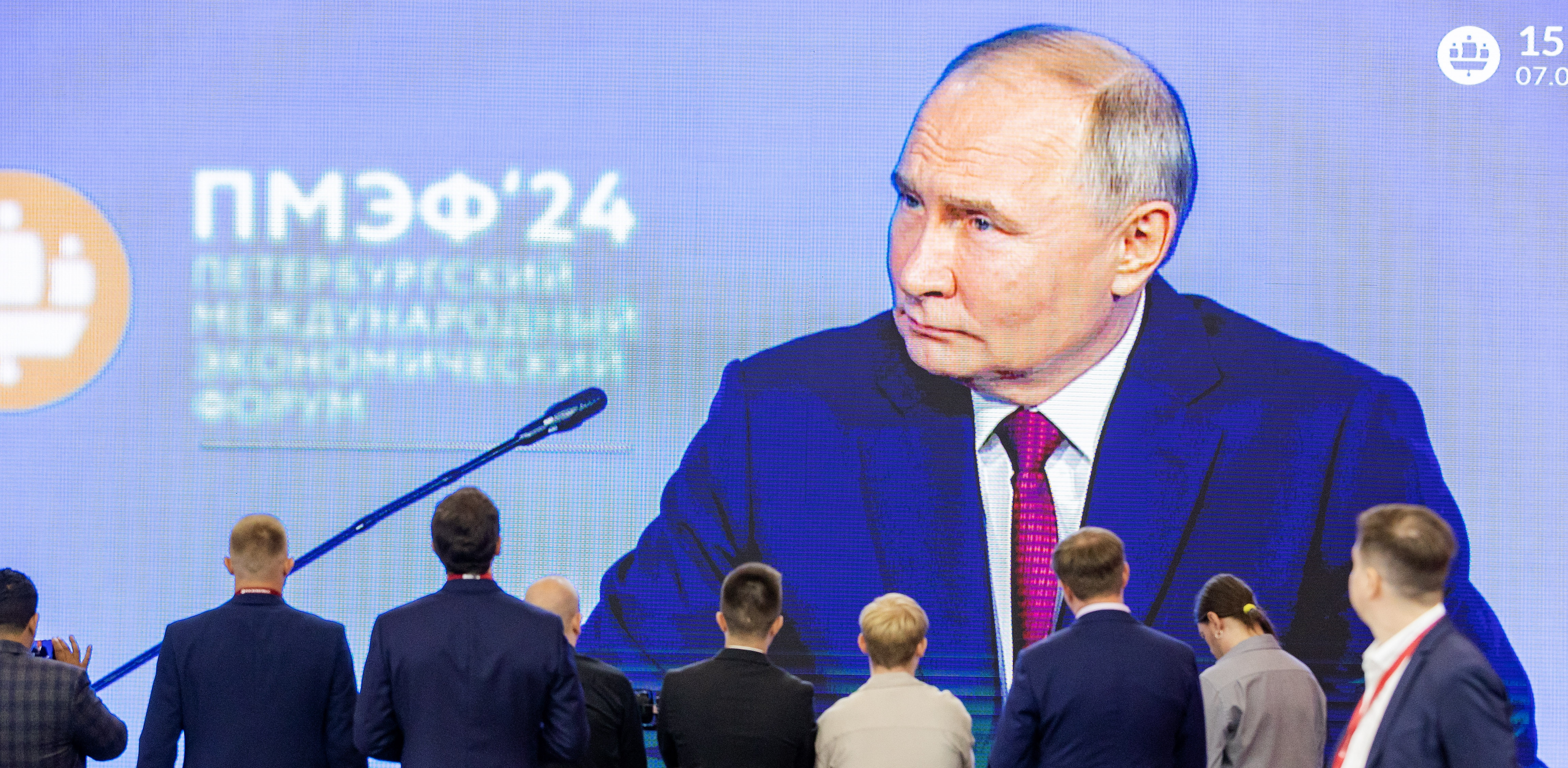 Article
Article Interpreting the September 2024 Russian elections
By Olga Gushchina
October 10, 2024

Putin’s difficulties are plenty and mounting
By Vladimir Milov
June 04, 2024
 Article
Article By Vladimir Milov
July 03, 2024
 Article
Article Interpreting the September 2024 Russian elections
By Olga Gushchina
October 10, 2024
